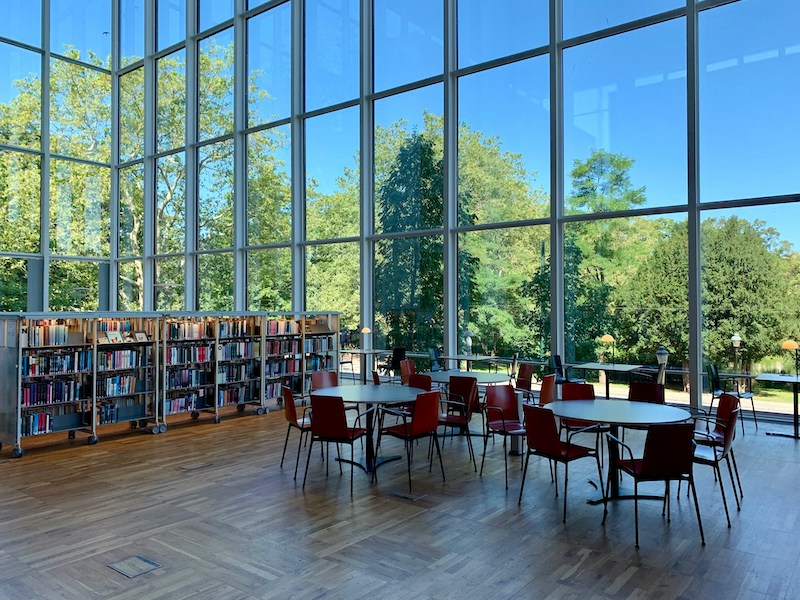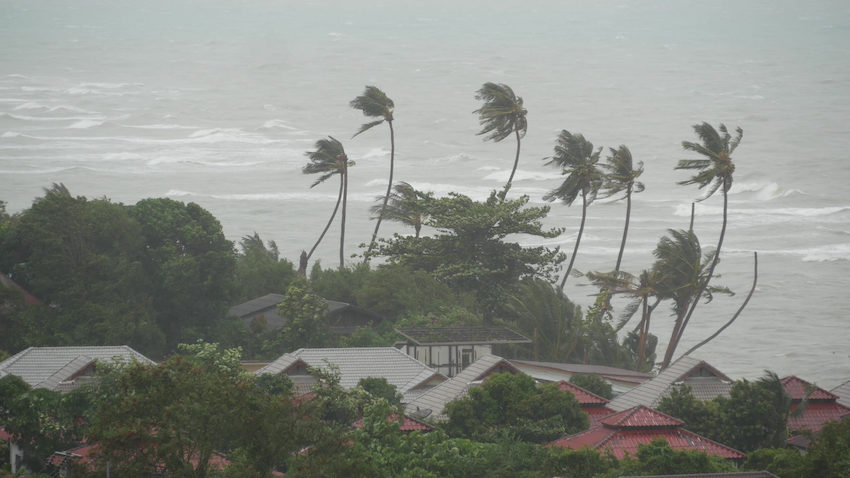The inspirations of radical nostalgia
On history, ecology and inheriting God
Featured in

- Published 20240806
- ISBN: 978-1-922212-98-6
- Extent: 216pp
- Paperback, ePUB, PDF

ON A WARM Monday morning in late February 1988, I tentatively entered a sandstone lecture theatre and climbed the wide stairs to one of the near-to-the-back rows. I was accompanied by two of my closest friends from high school, and we should have been well practised, having arrived to classrooms together literally thousands of times. Yet this was different. The teaching space was so much bigger, able to seat hundreds of pupils, and we were the little kids again, ‘freshers’ in our very first class at the oldest and largest university in our state, impressive to our young provincial eyes. That Beethoven’s Ninth was playing over the loudspeaker added decidedly to the weight of the moment and my ambient sense of impostorism. The lecturer waiting behind the lectern was a middle-aged man with unruly dark hair and glasses. As the class began and the teacher introduced himself I wrote his name – Professor Richard Bosworth – in blue pen on a piece of paper that I still have in storage somewhere.
The unit was Late Modern European History 102 – an easy choice for my friends and me, as we’d all liked and done well at history in our leaving year. We soon found out, though, that this was no simple narrative account of events of the kind to which we were accustomed, but a different country altogether. The course was a steep introduction to ‘history’ as fundamentally unstable: a multivalenced, complicatedly ironic and endlessly nuanced dialogue between past and present. The feeling was unsettling; a departure from comforting certainties of neatly ordered understanding into a far more complex milieu of infinitely greater strangeness and richness, with still evolving tendrils that reached disconcertingly into the now.
The pedagogic intent of LME, as it was known, was accomplished through the examination of the work of select historians as well as an eclectic array of other interpreters of Europe’s many histories, including film directors, novelists, comedians and diarists. Though the temporal span of the course began with the French Revolution of 1789, there was particular focus on studying explanations of the ‘long’ Second World War, and how, why and when these interpretations had changed and evolved over time. I was enthralled by the epic nature of the subject matter and charmed by the ample charisma and engaged humanity of the teacher. Perhaps above all, though, it was the ethical, political and intellectual offering of the course that I found gripping: the invitation to participate in serious inquiry into the moral crisis of Europe’s age of mass violence through historiographical engagement as a civically important and challenging obligation. To be trusted with this was an intoxicating initiatory promise to a callow sixteen-year-old in search of meaning.
In hindsight, both the intensity and scale of the course seem astounding. LME was a whole-year unit with more than thirty weeks of teaching. The class outline had a scrapbook aesthetic and was dense with readings, roughly cut-out pictures and excerpts of text – an assemblage that had been hard-earnt in those days before the instant results of internet searches. Two in-person lectures per week were supplemented by fortnightly tutorials delivered by Richard Bosworth or one of the other tenured historians from what was then a whole history department within an intact Faculty of Arts. There was also an optional but well-subscribed weekly film program. Marking was careful and personalised, done line by line in handwriting on paper copies of assessments. The grading of every assignment was followed by a substantive discussion with the teacher who had assessed the piece. Tutorial groups were no more than ten or twelve, typically held in the academic’s personal office, beginning with the offer of tea or coffee. There were, from memory, at least seven pieces of graded ‘take home’ written work and an end-of-year exam, as well as a minimum of six verbal presentations to be made in tutorial groups. That the course was meant to be demanding was a point of pride, meant as a statement of trust in our commitment and intelligence as students.
To some extent, the scepticism and interrogative habits of LME only made sense so long as certain long-established precepts of university life continued to pertain. In those days there was still genuine confidence within the halls of the academy. Universities themselves, of course, are neither static nor uniform, and the function of higher education has no doubt always been contested, but as the twentieth century deepened, certain assumptions – for example, that faculty members needed space and long-term security to be able to research and think, and that students had similar requirements to participate in campus life and to learn – were commonplace. Despite or perhaps enhanced by the upheavals of the 1960s, both academics and the forms of knowledge they produced seemed to still retain a greater prestige and authority than now.
But ‘higher education reform’ was on the way, even while we first years progressed, as oblivious to the fate of the sector as animals deep in a forest scheduled for logging. The Hawke Labor government marked the 200th anniversary of the revolution of liberté, égalité, fraternité by initiating student fees in the form of the Higher Education Contribution Scheme, abolishing the era of free education that had been introduced by Gough Whitlam.
The subsequent trente années misérables-plus of ‘higher education reform’ – the systematic degradation of Australia’s university sector in the name of neoliberal economic orthodoxy – has been particularly harsh on the arts and humanities, including the teaching of history. According to historians Martin Crotty, Frank Bongiorno and Paul Sendziuk, in 1989 there were about 450 full-time equivalent paid positions in history in Australian universities, a number that had been reduced to 319 full-time equivalent positions by 2023. That number is set to be further reduced by the cutting of thirty-two full-time humanities posts at the Australian Catholic University, with the disciplines of history and philosophy to be the worst affected.
In context it seems onomatopoeically apt that the word ‘reform’, particularly when repeated, can sound a little like the starting of a chainsaw. Since 1989, fees have been repeatedly raised; management has come before vocation; universities have been marketised, digitised and commodified; and many staff have been casualised and driven to precarity. In what Raimond Gaita once described as managerial newspeak, students are recast as consumers or service users, and academics as content providers whose work is assessed through an asinine and perverting focus on outputs and rankings. Richard Bosworth once mocked neoliberal politicians and administrators for holding that ‘real estate studies should be the centre of the modern university’. Thirty years later, obeisance to the market and managerial ideology has become the central organising principle of higher education in Australia.
On top of the broader trends, an especially pernicious attack was launched under the federal government of Scott Morrison. Having first singled out Australian public universities for punishment by excluding the sector from JobKeeper during the Covid pandemic, the Morrison government then introduced ‘reforms’ in 2021 known as the ‘Job-ready Graduates Package’ that rendered humanities subjects more than 113 per cent more expensive. As Raewyn Connell noted, Morrison’s government disliked ‘humanities and social sciences, basically because they encourage critical thinking’, so purposefully set about making these courses more difficult to access and burdening those who persisted regardless with much heavier debt. If the study of history within the university has constituted one of the primary means of the making of public memory in the modern nation state, then this was a policy designed to drive an agenda of collective amnesia. Reforms not to foster learning but to drive forgetting. Reform, reform, reform…until the trees crack and fall.
LIKE THE OVERWHELMING majority of university history students, I did not end up becoming an academic historian. I’ve no doubt, though, that the habits of humane critical inquiry acquired in LME and then reinforced across later units informed my vocational choices, first to work as an Indigenous rights lawyer, then to serve the cause of Greenpeace. In career terms and notwithstanding all the inherent ironies and complications, working particularly in the field of native title acting for traditional owners in the wake of the Mabo decision, among many other motivations, felt like an appropriate moral response to the hideous excesses of nationalism that we’d studied in LME.
Later, I would find clear parallels between the practice of history that I’d learnt as an undergraduate and the work of being an environmental campaigner. Environmentalism, like history, is a civic discourse that critically engages with change in the world, contemplates the nature of limits and challenges ahistorical self-absorption. Like all good historians, environmentalists create recognition that the structures and conditions of today are not natural, inevitable or preordained but thoroughly contingent. The study of history and ecologically motivated advocacy also both demand reasoned scepticism towards the ideological claims of the powerful. And in contemporary Australia it is inevitable that both academic history and ecological consciousness involve a reckoning with paradigms of diminishment and decline; the dwindling of the humanities in our universities echoes a greater and more irrevocable story of diminuation, that of appalling systemic ecological loss on our continent.
While there are isolated stories of resurgence and recovery, the broader picture of Australia’s biodiversity is a tableau of massive-scale rapid depletion and deterioration. Just over a year after the ‘Job-ready Graduates Package’ was unveiled by the Morrison government, the national five-yearly assessment of the state of the environment was provided by the relevant statutory authority to minister Sussan Ley. The government declined to release the report prior to the election, with the consequence that it was only published by the incoming portfolio holder, Labor’s Tanya Plibersek, a year later. Headline findings included: the diversity of wild animals and plants in Australia is declining, and the number of threatened species is increasing; at least nineteen Australian ecosystems are showing signs of collapse or near collapse; more mammal species have been driven to extinction in Australia than any other continent; and Australia has one of the highest rates of species decline in the developed world. The report also archly noted that ‘biodiversity overall is monitored very poorly in Australia, and we cannot assess the state and trend of most species with any confidence’.
While the scientific surveying might be patchy, you don’t have to go far to hear stories of waning and vanishing. For example, one of my relatives told me recently that the herring run he’d reliably fished off the Perth coast for at least five decades had no longer been present on the last few trips out. In another instance, a former colleague, an Indigenous man of high standing within his language group in the Pilbara, lamented the drastic drop in wildlife, with game animals such as kangaroo and emu decreasing in number as mining developments and their associated infrastructure continue to carve up the traditional lands of the Marlpa nations of that country. On the day I wrote this paragraph an old woman I know well who is a keen twitcher remarked to me that ‘these days’ the only bird she sees in her yard with any frequency is the invasive common myna. And of course any Australian of a certain age will tell you that a drive in the country at dusk used to mean a windscreen covered in hapless, splattered insect bodies. Not anymore.
Given my role I often hear stories of this kind, told almost as if in confessional mode, of living things, once prolific, disappearing. Gone. Last year I visited the Northern Rivers twelve months after two massive floods had inundated the region in quick succession. There was no agenda but witnessing: informing my campaign advocacy through seeing and listening to people’s experiences of extreme climate damage. In the heat and humidity, so different to the unstopping rains of twelve months before, I heard survivors describe what they had been through, both in the crazy disruption of the days and nights of disaster and in the drying, dreary, wearying aftermath. In one backyard, a young man I’ll call Abe recounted his experience of near drowning and escape, and the destruction and hardship that had followed in the wake of the vandalistic waters. Even heavy furniture had been washed away. Abe and his pregnant partner had done their best to clean the place up and waterproof a couple of rooms, but the house remained structurally stuffed and they couldn’t afford to move, so life continued as cheerfully as possible.
Abe and others who survived the unnatural tempest conveyed a bleak sense of time interrupted – not dissimilar, in a way, to the brutal breaking of life’s assumed pattern and shape by the catastrophic events of Europe’s violent twentieth century, as evoked in so many of the sources that I’d studied back in LME. Severe changes in nature were part of the harm. The once prolific frogs especially loved by Abe, for instance, had completely vanished from his yard in the wake of the stormwaters. According to the Lismore City Council Flood Response, the ‘prolonged and intense rainfall in the upper catchment, and the resultant major flooding…had very significant environmental impacts across the entire local government area’. For example, a vast fish-kill had occurred in the Richmond River, brought about by deoxygenation in the water caused by rotting vegetation washed in from the floodplains by the unprecedented rains – unleashed by climate change driven primarily by the mining and burning of gas, coal and oil.
MOST OF THE time, when we gaze out on the world, we see what is there, not what is gone. Social scientists call this phenomenon ‘survivorship bias’ – we are more likely to notice people and things that are still with us, rather than those that have vanished. There’s nothing inherently sinister about this – after all, we can only see what is there to be seen – but in context, the consequences are profound and troubling. As time passes, the recollection of the conditions that prevailed before each cataclysm will become dimmer and, inevitably, held by ever-decreasing numbers of people.
Callum Roberts’ The Unnatural History of the Sea (a book that I have admiringly referred to in a previous Griffith Review essay) straddles the boundaries of history and ecology, using historical sources to track the extent and trajectory of the decline of wildlife in the oceans. The point Roberts makes is that in the consequence of a trend of sharp ecological impoverishment, each generation assuming what it finds to be ‘normal’ necessarily becomes an exercise in mass erasure. Significantly, as Roberts observes:
[t]he idea of shifting baselines is familiar to us all and does not relate only to the natural environment. It helps explain why people tolerate the slow crawl of urban sprawl and loss of green space, why they fail to notice increasing noise pollution, and why they put up with longer and longer commutes to work. Changes creep up on us, unnoticed by younger generations who have never known anything different. The young write off old people who rue the losses they have witnessed as either backward or dewy-eyed romantics.
So just as young moderns may doubt the tales of prolific wildlife populations narrated by their elders or written down by previous generations, contemporary university students may perhaps regard stories of what higher education used to be like with a similar sense of dubiousness or outright disbelief. Yet the likes of LME did exist as part of the ordinary reality of undergraduate life, and the oceans once heaved with shoals of enormous fish – as unimaginable as each may now be in the bleak light of a world that is being churned and burned in the name of corporate greed and market ideology.
Looking backwards and recognising that some stuff was just unquestionably superior at various points in the past may feel counterintuitive to Australian ‘progressives’, for whom contemporary historical consciousness is rightly (and tightly) bound up with attempts to reckon with the nation’s legacy of colonisation, racism, sexism, intolerance and so on. The very designation progressive optimistically conjoins forward motion with social, political and economic change leading to greater equality, justice and sustainability. Yet casual disavowal of the past can amount to the replacement of one form of simplistic narrative with another, providing a conveniently blank canvas to every CEO, techno lord or free marketeer who insists that there is no alternative. An LME-style interrogation would invite an impatience with simplistic declamations or narratives of any sort, but itself relies on the affordance of a level of institutional continuity as a given that no longer pertains. In each and every case, ironic detachment is of limited use for a planet on fire.
History is too important to simply be ceded to either the tyranny of relentless presentism or the oppressive purposes of reactionary atavism. We can simultaneously reject the tyrannies and cruelties of the past and be energised and inspired by that which was kinder and more nurturing of humanity and nature. Acknowledging that ‘some things were better’ is in no way to offer apologia for all that was very much worse. The situation in relation to greenhouse gas concentrations, for example, can be rendered straightforwardly. The year I studied LME, 1988, was the first year carbon in the atmosphere passed 350 parts per million; today the world is at more than 420 ppm. The trajectory in relation to biodiversity loss, plastic pollution and a host of other environmental indicators is similarly clear. A form of nostalgia for when the world was in much better shape in environmental terms – a time before the climate and ecological crisis became so manifest – is not schmaltz, but actively subversive of the status quo in which too many political and business decision-makers continue to usher humanity and biodiversity towards a fate of ecological oblivion.
There is nothing natural or inevitable about the ‘decline’ of history and the broader arts and humanities, any more than there is the destruction of nature. Neither are passive or natural processes; both occur as a consequence of deliberate decision-making made in accordance with ideological preferences, usually supporting the material objectives of the vested interests that systematically corrupt our democracy and society.
Redeeming universities and other public institutions requires sustained political effort. The decline of academic history can be reversed through ending the ideological sway of neoliberal managerialism in universities, the allocation of reasonable levels of resourcing, and the provision of job security and professional autonomy to sufficient numbers of historians, plus time and space to learn for their students. Loss of historical consciousness, unlike extinction, need not be forever. With air returned to their lungs once more, the disciplines preoccupied with human purpose and meaning, fostering habits of critical thinking, are amenable to full resuscitation.
TOWARDS THE END of 1988, Bosworth concluded LME with a final expansive lecture. ‘History,’ he said emphatically, ‘is a real course, a course that matters’ for great moral reasons. The conception of events as the unfolding of divine will had, in the aftermath of the Enlightenment and the onset of modernity in Europe, been largely substituted with the idea of human agency as the engine of historical change. In that multiply ironic sense, Richard told us that, as students of history, we had ‘inherited the past; inherited god’.
His declaration was, I am certain, intended to instil humility rather than hubris, because none can presume to know ‘the mind of god’, even as a metaphor, in the form of the secular analogue of historical explanation. Thus, there was a characteristic impishness to the message: history has no final answer, but is instead, in a phrase coined by Dutch historian Pieter Geyl, an ‘argument without end’, not in the sense of discounting the relative probity of evidence, but because of the fluctuating contexts, methodologies, politics and valencies of competing interpretations. Historical consciousness, then, might nourish the humanity of our sensibilities and encourage resistance towards the oversimplification of life that invariably provides the preconditions to oppression. Engaging with history could also help foster multiple perspectives, enabling deeper and more pluralistic democracy as a perpetual means of holding the powerful to account.
In the context of climate and ecological emergency, the suggestion that history has in some way succeeded the mantle of the divine takes on an altogether different implication. As David Attenborough said bluntly in 2019, ‘the garden of Eden is no more’; but as work like that of Callum Roberts shows, history enables us not only to evoke the riches of paradise before the fall but by implication to glimpse what might yet grow again. Knowing what has been lost frees us to imagine what could flourish in the future and should inspire our collective will to act in the hope of life resurgent. This idea of resurrection is derived not from any religious text but a forensic awareness of the shifts in society and environment that have been caused by human hands, and so can conceivably be redirected towards regeneration through active agency. Roberts is one of many scientists who, along with organisations such as Greenpeace, have long advocated for the creation of vast high-seas marine sanctuaries, to enable the oceans to recover – a possibility that was enabled for the first time under international governance with the United Nations’ passing of the Global Oceans Treaty in 2023. So it is that the profane instruments of transnational governance can offer the prospect of sublime renewal.
That the ecology of the world can be changed drastically by humanity has been amply demonstrated, but this means that transformation in the opposite direction, towards restabilising the climate, remediating pollution and regenerating the magnificent diversity of life on Earth, is also possible to a partial but nonetheless wonderful extent. We cannot reanimate the extinct from the abyss of forever or altogether make whole what has been smashed, but nature, given the chance, will always resurge. History not only enables lamentation and reckoning, but the bright light of what is realisable based on an apprehension of the world we once knew.
Image credit: Drahomir Hugo Posteby-Mach courtesy of Unsplash
Share article
More from author

The ship, the students, the chief and the children
Non-fictionThe power of the fossil-fuel order depends on foreclosing any kind of political and institutional decisions that would see societies break free from the malignant clamp of coal, oil and gas corporations. This power also depends on eliding alternative ways of seeing. In one sense, the whole of the political struggle against climate change can be understood as an effort to make corporate and political decision-makers see, such that they are required to act.
More from this edition

The National Institute of Standards and Technology
Poetry I disappoint myself each day that I remember my work password I take it that seriously that I base my key on the National Institute of Standards and...

Habitat
PoetryIt was early. I recognised my fate in the bathroom mirror. Behind which he slept deep into the morning...

Radioactive fallout
Non-fictionThe quake lasted six minutes – the office floor jolted convulsively; metal shelves rattled, files fell with a cacophony of thuds, and the structure of the building seemed to be squeaking. And then it stopped. My office building hadn’t collapsed. Neither had our apartment; my husband and son weren’t hurt. But it wasn’t the end. The Fukushima Daiichi Nuclear Power Plant had lost power, which was required to cool both the reactors and spent fuel rods. The government was braced for the worst: massive explosions or core meltdowns. A nuclear emergency was declared at 7.03 pm.